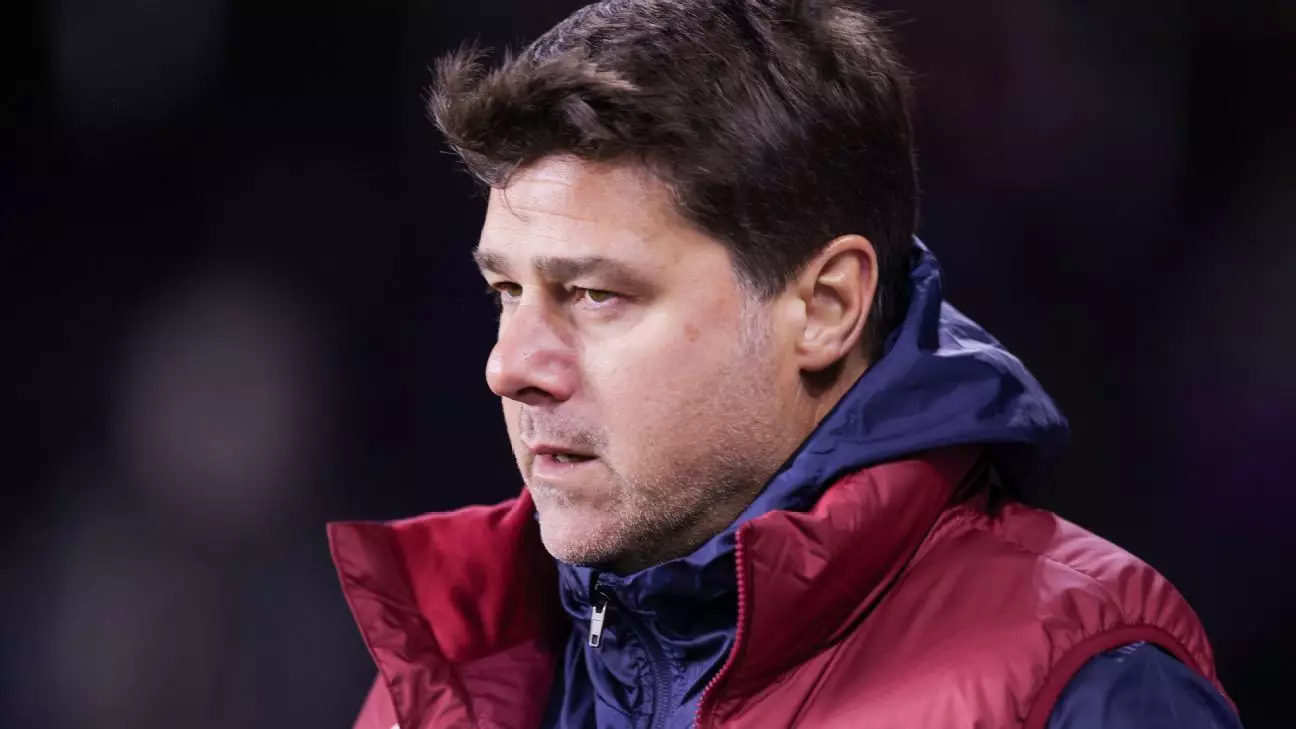In recent sporting events, especially in the realm of international soccer, the intersection of politics and athletics has sparked heated conversations. The Concacaf Nations League semifinal between the U.S. men’s national soccer team (USMNT) and Panama became a focal point, not just of sports but geopolitics as well. U.S. team manager Mauricio Pochettino attempted to deflect the significant political implications brought to light by President Donald Trump’s controversial comments about Panama Canal sovereignty. He cautioned against intertwining politics with performance, expressing that spectators are primarily focused on football, rather than the wider political narratives surrounding it.
Pochettino emphasized a singular focus on competitive spirit, indicating that the national team should embody pride and resilience on the field rather than be detracted by outside influences. The comment, “I think it’s a big mistake if we talk about politics,” succinctly captures the essence of a sportsman’s duty: to compete and bring joy, while leaving the political discourse to the sidelines. This resonates deeply in the sporting community; as athletes, their primary role is to entertain, inspire, and uplift fans, rather than navigate the treacherous waters of political dialogue.
Maintaining Focus Amidst Distraction
The backdrop of political tensions only amplifies the high stakes associated with matches like these. Last summer’s Copa América saw Panama triumph over the U.S. in a narrow 2-1 victory, adding another layer of competitive fervor to the upcoming match. Pochettino’s strategy hinges on the belief that maintaining concentration amidst external noise is imperative for success. His remarks about wanting to “destroy Panama, but in a sporting way,” underline an intense commitment to competitiveness while ensuring it’s explicitly confined to the athletic arena.
Panama’s coach Thomas Christiansen echoed a similar sentiment. By distancing political discussions from the sport, he created a space where both teams can thrive based solely on their tactical and technical abilities. His focus on football systems over political narratives demonstrates a collective desire among coaches to foster a pure sporting environment, free from distractions that could potentially derail their teams’ preparations and performances.
The Broader Implications of Sportsmanship
The conversation does not end with just the two coaches; it expands to include figures like Canada’s Jesse Marsch, who noted the growing elevation of national pride through sport. Sports have a unique capability to unite disparate cultures and regions, and Marsch reminded us that celebrating the essence of the game fosters camaraderie among nations. His plea to prioritize supporting athletes, rather than getting mired in political disputes, reflects a call for a purified sense of sportsmanship that transcends friction between nations.
Marsch’s prior critiques of U.S.-Canada relations illustrate a nuanced understanding of the rivalry within North American sports while advocating for mutual respect and support. These sentiments reveal an overarching trend—when political discussions take precedence in sporting arenas, it risks alienating fans and players alike. Thus, it becomes evident that mutual appreciation and respectful rivalry should define international competitions.
A Call for Unity Through Soccer
Pochettino’s perspective draws from his broader experiences, including his time coaching in the U.K., where political tensions have historically influenced perceptions. His assertion that mixing politics with sports has never aligned with his values serves as a clarion call to preserve the sanctity of sport. The narrative that soccer is primarily an avenue for enjoyment and collective happiness resonates strongly, especially given the recent global challenges that have altered the landscape of live sports.
In essence, the political noise surrounding this match should serves as a reminder that the core of sports is rooted in passion, competition, and unity. As Pochettino and his team prepare for battle on the pitch, the focus remains on exhibiting grit, determination, and artistry—qualities that define not just a team but the sport itself. By championing this mindset, soccer can ignite the kind of camaraderie that truly represents the spirit of competition, transforming seemingly insurmountable political divides into moments of shared joy among fans and nations alike.


Leave a Reply